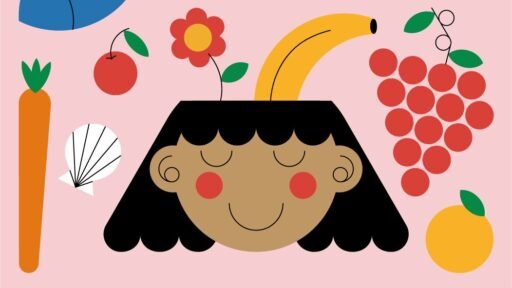Feeling anxious? Your diet might hold the key to relief. Certain foods can soothe your mind, boost mood, and reduce stress, while others may worsen anxiety. Nexus Mag reveals the best diet for reducing anxiety, packed with nutrients like omega-3s and magnesium, plus tips to eat your way to calm!
The Gut-Brain Connection
The gut and brain are deeply linked, with the gut often called the “second brain” due to its complex neural network. About 90% of serotonin, the “feel-good” neurotransmitter, is produced in the gut. A diet rich in gut-friendly foods supports serotonin production, stabilizes mood, and reduces anxiety. By choosing the right foods, you can nurture both your body and mind.
The Best Diet for Reducing Anxiety
An anti-anxiety diet emphasizes nutrient-dense foods that support brain health and avoid triggers that spike stress. Here’s what to include:
1. Omega-3 Fatty Acids
Found in salmon, flaxseeds, chia seeds, and walnuts, omega-3s are brain-boosting fats that regulate neurotransmitters.
Benefits: Lower anxiety and depression risk; studies show 20% reduced anxiety symptoms with higher omega-3 intake.
Tip: Aim for 2–3 servings of fatty fish weekly or 1 tbsp flaxseeds daily.
2. Magnesium-Rich Foods
Magnesium, a calming mineral, is abundant in spinach, almonds, pumpkin seeds, and avocados.
Benefits: Relaxes the nervous system, improves sleep, and reduces stress.
Tip: Eat 1 cup spinach or ¼ cup almonds daily; consider 200–400 mg supplements if deficient (consult a doctor).
3. Probiotics
Probiotic-rich foods like yogurt, kefir, kimchi, and sauerkraut balance gut bacteria, boosting serotonin.
Benefits: Enhance digestion and mood; a 2019 study linked probiotics to reduced anxiety scores.
Tip: Include 1 cup yogurt or ½ cup fermented veggies daily.
4. Tryptophan-Rich Foods
Tryptophan, in turkey, nuts, seeds, and dairy, is a precursor to serotonin and melatonin.
Benefits: Promotes relaxation and better sleep, easing anxiety.
Tip: Snack on ¼ cup mixed nuts or a small turkey sandwich before bed.
5. Complex Carbohydrates
Whole grains like oats, quinoa, and brown rice provide steady energy, stabilizing blood sugar.
Benefits: Prevent mood swings and irritability linked to anxiety.
Tip: Swap white bread for ½ cup quinoa or oats at meals.
Foods to Avoid for Anxiety Relief
Some foods can worsen anxiety by disrupting mood or increasing inflammation:
- Caffeine: Found in coffee, tea, and energy drinks, it can spike heart rate and trigger panic. Limit to 1 cup daily or switch to decaf.
- Sugar and Refined Carbs: Candy, soda, and white bread cause blood sugar crashes, leading to irritability. Choose fruit or whole grains instead.
- Processed Foods: Fast food and packaged snacks with additives may cause inflammation linked to mood disorders. Opt for whole foods.
How an Anti-Anxiety Diet Improves Sleep
Poor sleep fuels anxiety, and anxiety disrupts sleep—a vicious cycle. A nutrient-rich diet can break it:
- Tryptophan Foods: Boost melatonin for deeper sleep; try warm milk or turkey before bed.
- Herbal Teas: Chamomile or valerian root tea calms the mind, easing you into restful sleep.
- Magnesium: Relaxes muscles and promotes sleep; eat magnesium-rich foods or take a supplement 1–2 hours before bed.

Practical Tips for an Anti-Anxiety Diet
Adopting an anti-anxiety diet is simple with these strategies:
- Plan Meals: Prep weekly meals with leafy greens, lean proteins, and healthy fats for consistent nutrition.
- Don’t Skip Meals: Eat every 3–4 hours to stabilize blood sugar and prevent anxiety spikes.
- Stay Hydrated: Drink 8–10 cups of water daily to support mood and cognition.
- Limit Alcohol: Alcohol disrupts sleep and worsens anxiety; keep it to 1 drink or less daily.
- Try Mindful Eating: Chew slowly and savor meals to reduce stress and improve digestion.
Can Supplements Help?
Supplements can complement a diet but should be used cautiously:
- Magnesium: 200–400 mg daily may ease tension.
- Omega-3s: 1–2 g fish oil capsules if fish intake is low.
- Vitamin B Complex: Supports neurotransmitter production; take as directed.
Note: Consult a healthcare provider before starting supplements, especially if on medications.
FAQs About the Best Diet for Reducing Anxiety
What’s the best diet for reducing anxiety? A diet rich in omega-3s (salmon), magnesium (spinach), probiotics (yogurt), and tryptophan (turkey), avoiding caffeine and sugar.
How long does it take to see results? Mood improvements may start in 2–4 weeks, with significant changes in 1–2 months.
Can diet replace anxiety medication? No, but it can complement treatment; consult a doctor before changing meds.
Do supplements help anxiety? Magnesium, omega-3s, and B vitamins may help, but medical advice is key.
Can this diet help other mental health issues? Yes, it may ease depression and stress by supporting brain health.
Calm Your Mind with Every Bite
The best diet for reducing anxiety fuels your brain with omega-3s, magnesium, probiotics, and tryptophan while avoiding caffeine, sugar, and processed foods. Pair it with good sleep and hydration for a holistic approach to mental wellness. Start small, eat mindfully, and watch your stress melt away. Explore more wellness tips in our Lifestyle hub at Nexus Mag.






